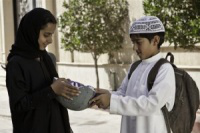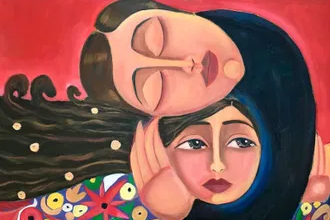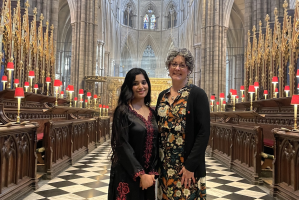Film: Wadjda

Scene from Wadjda
One of the biggest surprises of this year’s London Film Festival has to be Haifaa al Mansour’s wonderful debut film, Wadjda, John Paul Morrison writes in Thinking Faith. It is the first-ever feature film to be made in Saudi Arabia, where cinema and film are banned. It is directed by a highly talented and gifted woman who sets out to confront our perceptions of her homeland whilst telling a story with universal themes of hope and perseverance. It is a real gem and when it goes on general release, be sure to go and see it. It will lift your spirits and put a spring into your understanding of Arab culture and identity in a way you will not expect.
Haifaa al Mansour stated that for her, the film is about resistance and holding onto your dreams. It stars Waad Mohammed as a ten-year-old girl, Wadjda who has a great friendship and rivalry with her neighbour (Abdullrahman Al Gohani), a boy who has a bike. He is free to ride where he likes. Wadjda sees the bike as freedom, so we are taken on a journey of discovery driven by her goal of having a bike, too. Her mother (Reem Abdullah) is horrified; riding a bike is not becoming of a young Muslim girl.
The journey takes us through Wadjda’s relationships with her mother and father, and her experiences at school. Wadjda realizes that in order to obtain the money she needs to buy the bike she covets, she will have to enter her school’s Qur’an reciting competition and win the cash prize – the only problem is she does not know the Qur’an and needs to learn fast.
What follows is a very funny and instantly recognizable journey of discovery. Wadjda enlists the help of her mother to learn the Qur’an, and Haifaa al Mansour uses the opportunity to identify key excerpts from the Qur’an that have universal appeal and understanding. But there is a dark undertone of people struggling with who they are and what their faith means to them. Wadjda’s mother is anxious and disillusioned about the forthcoming marriage of her husband to another woman whom he hopes will bear him a son. Wadjda’s father clearly loves his family, but is too distant to really relate to his daughter.
To read on, see: www.thinkingfaith.org/articles/FILM_20121019_3.htm















